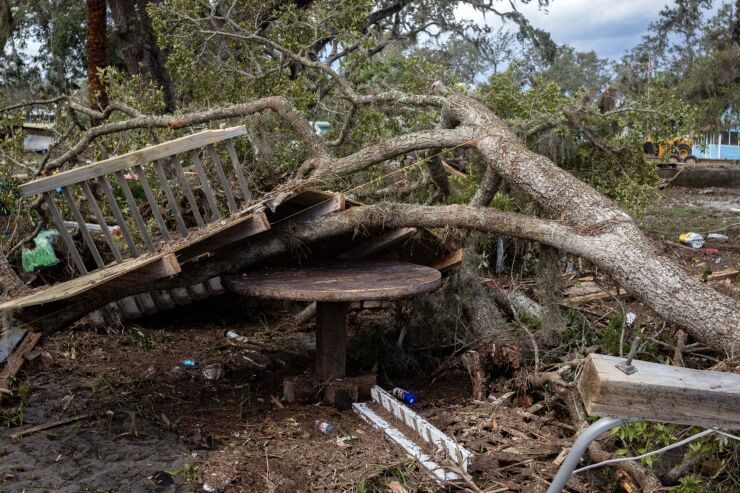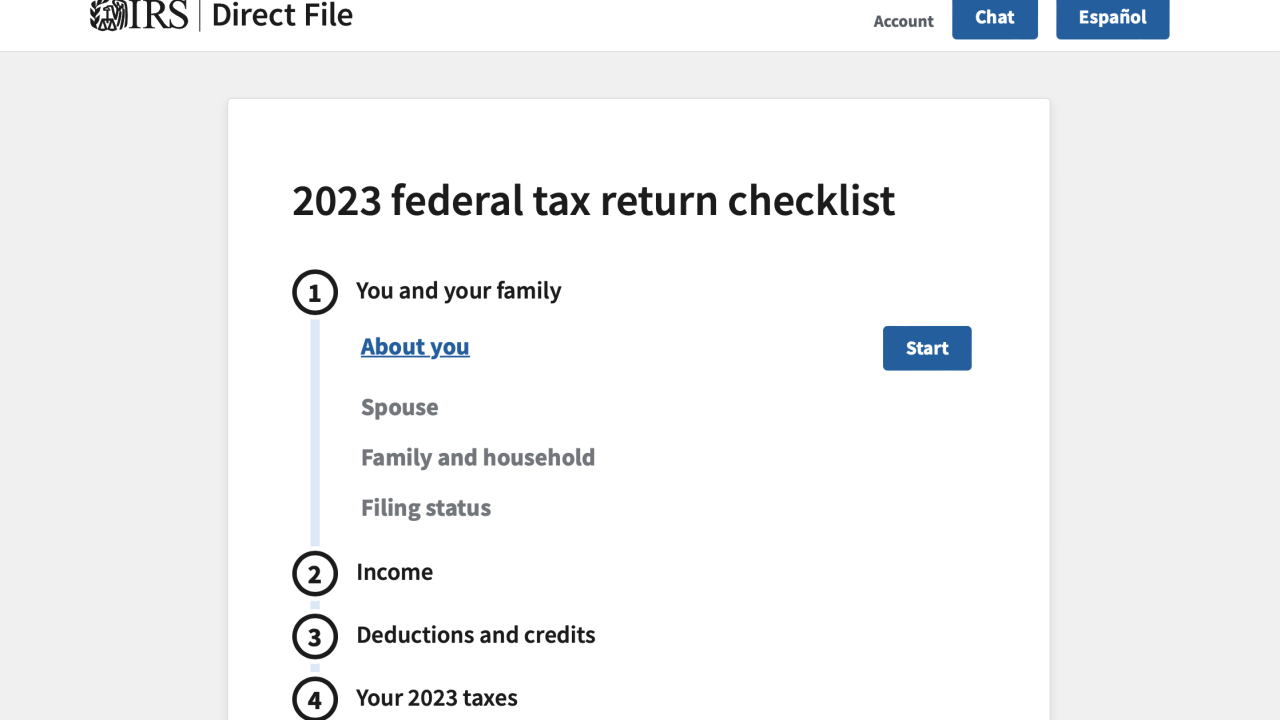Victims of Hurricane Idalia in Georgia now have until next Feb. 15 to file various federal individual and business tax returns and make tax payments — similar to the relief recent offered to residents of
The IRS is offering relief to any area designated by the Federal Emergency Management Agency, which currently includes 28 of Georgia's 159 counties. (The list of eligible localities is always available on the
Individuals and households that reside or have a business in these counties qualify for relief: Appling, Atkinson, Bacon, Berrien, Brantley, Brooks, Bulloch, Camden, Candler, Charlton, Clinch, Coffee, Colquitt, Cook, Echols, Emanuel, Glynn, Jeff Davis, Jenkins, Lanier, Lowndes, Pierce, Screven, Tattnall, Thomas, Tift, Ware and Wayne.
The relief postpones various tax filing and payment deadlines that occurred from Aug. 30, 2023, through Feb. 15, 2024. Affected individuals and businesses will have until Feb. 15 to file returns and pay any taxes originally due during this period.
The Feb. 15 deadline now applies to:
- Individuals who had a valid extension to file their 2022 return due to run out on Oct. 16, 2023. Because tax payments related to these 2022 returns were due on April 18, 2023, those payments are not eligible for this relief.
- Quarterly estimated income tax payments normally due on Sept. 15, 2023, and Jan. 16, 2024.
- Quarterly payroll and excise tax returns normally due on Oct. 31, 2023, and Jan. 31, 2024.
- Calendar-year partnerships and S corporations whose 2022 extensions run out on Sept. 15, 2023.
- Calendar-year corporations whose 2022 extensions run out on Oct. 16, 2023.
- Calendar-year tax-exempt organizations whose extensions run out on Nov. 15, 2023.
Penalties for the failure to make payroll and excise tax deposits due on or after Aug. 30, 2023, and before Sept. 14, 2023, will be abated if the deposits are made by Sept. 14.

The
Affected taxpayers who don't have an IRS address of record in the disaster area — if, for instance, they moved to the disaster area after filing their return — could receive a late-filing or late-payment penalty notice for the postponement period. The taxpayer should call the number on the notice to have the penalty abated.
The IRS will work with any taxpayer who lives outside the disaster area but whose records necessary to meet a deadline occurring during the postponement period are in the affected area. Taxpayers qualifying for relief who live outside the disaster area need to contact the IRS at (866) 562-5227, including workers who are assisting relief activities and who are affiliated with a recognized government or philanthropic organization.
Individuals and businesses in a federally declared disaster area who suffered uninsured or unreimbursed disaster-related losses can choose to claim them on either the return for the year the loss occurred (in this instance, the 2023 return normally filed next year), or the return for the prior year (2022).
Taxpayers have extra time — up to six months after the due date of the taxpayer's federal income tax return for the disaster year (without regard to any extension of time to file) — to make the election. They should write the FEMA declaration number — 4738-DR — on any return claiming a loss.





